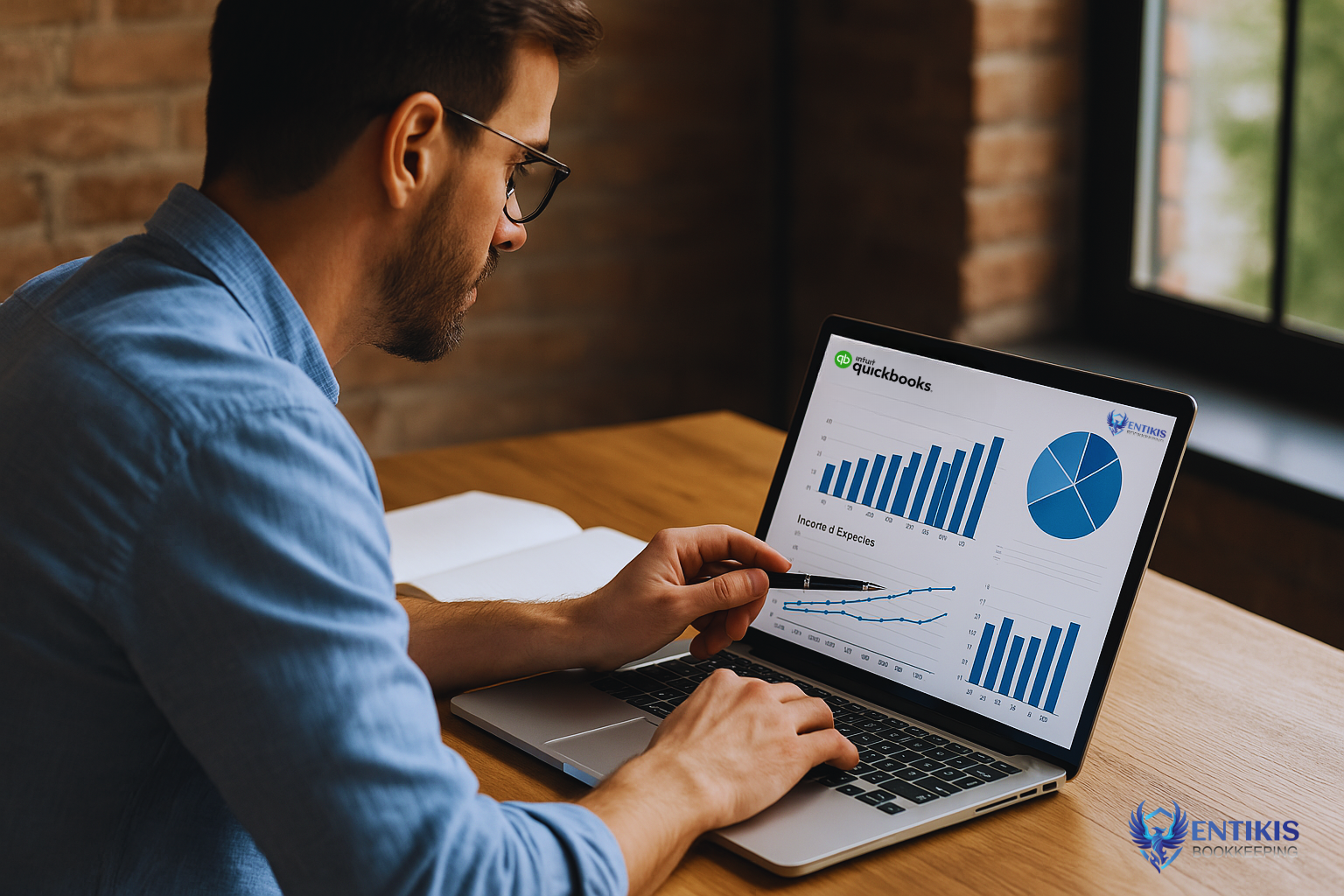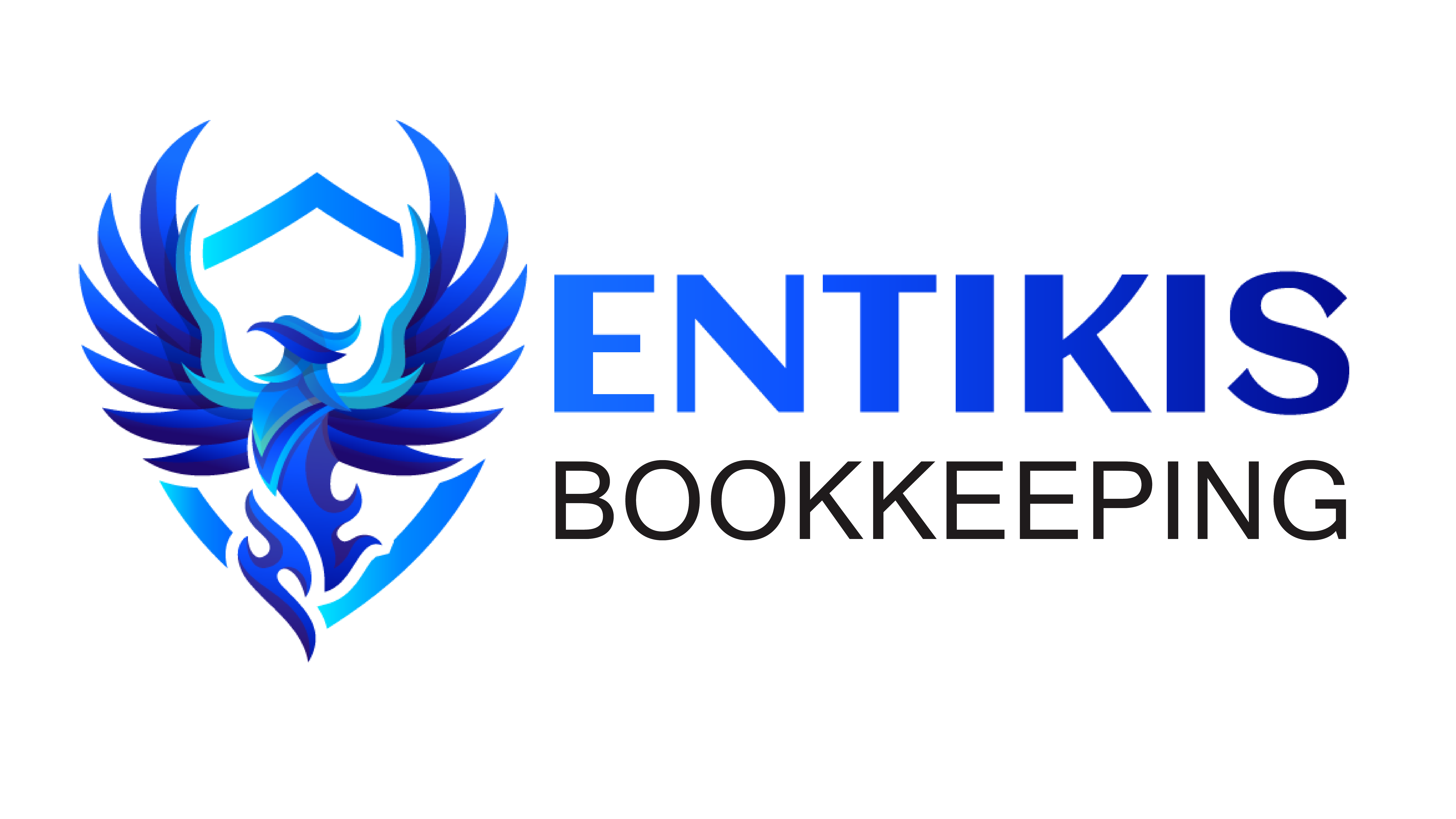
Embracing Sustainability
In today’s rapidly evolving business landscape, sustainability has emerged as a critical concept, transcending mere environmental concerns to encompass broader economic and social dimensions. At its core, sustainability in the business context refers to practices that meet the needs of the present without compromising the ability of future generations to meet their own needs. It involves integrating environmental, social, and governance (ESG) considerations into business strategies to ensure long-term viability and resilience.
As businesses worldwide grapple with the urgent need to address climate change, resource scarcity, and social inequality, the role of sustainability in bookkeeping has become increasingly relevant. Bookkeeping, traditionally seen as a mundane administrative task, is undergoing a profound transformation, evolving from a purely financial function to a strategic tool for sustainable business management. This shift is driven by a growing recognition that financial performance alone does not capture the full spectrum of a company’s value creation or its impact on the planet and society.
Incorporating sustainable practices into bookkeeping entails more than just tracking revenues and expenses; it involves measuring, analyzing, and reporting on a company’s environmental and social footprint. This includes tracking carbon emissions, water usage, waste generation, and adherence to labor standards and ethical sourcing practices. By integrating sustainability metrics into financial reporting, businesses gain a more comprehensive understanding of their performance and risks, enabling informed decision-making and stakeholder engagement.
Furthermore, embracing sustainability in bookkeeping fosters transparency and accountability, enhancing trust among investors, customers, and other stakeholders. Companies that demonstrate a commitment to sustainability not only mitigate risks associated with regulatory compliance and reputational damage but also unlock opportunities for innovation, cost savings, and market differentiation.
In this dynamic business environment, where sustainability is no longer a choice but a necessity, the future of bookkeeping lies in its ability to embrace and integrate sustainable practices seamlessly. By aligning financial management with environmental and social objectives, businesses can not only thrive in the short term but also contribute to a more resilient, equitable, and sustainable future for all.
The Importance of Sustainability in Bookkeeping
Bookkeeping, traditionally seen as a meticulous process of recording financial transactions, is undergoing a significant transformation in today’s business landscape. As the importance of sustainability continues to rise, integrating sustainable practices into bookkeeping has become essential for businesses aiming to thrive in a rapidly changing world. This article explores the critical aspects of sustainability in bookkeeping, emphasizing its environmental impact, cost efficiency, and its role in enhancing brand reputation.
Environmental Impact:
Traditional bookkeeping practices often involve substantial paper usage, leading to significant environmental consequences. Paper production consumes vast amounts of natural resources, including water and energy, while also contributing to deforestation and greenhouse gas emissions. Moreover, the disposal of paper waste further exacerbates environmental degradation, as it often ends up in landfills, where it decomposes and emits methane, a potent greenhouse gas.
Additionally, transportation-related emissions associated with the distribution of paper documents and the use of office equipment for printing and storing documents contribute to carbon emissions. By embracing digital bookkeeping solutions, businesses can significantly reduce their environmental footprint by minimizing paper usage, cutting energy consumption, and lowering carbon emissions associated with transportation and waste disposal.
Cost Efficiency:
Sustainable bookkeeping practices offer numerous cost-saving opportunities for businesses. Transitioning from paper-based to digital record-keeping not only reduces expenses related to paper procurement, printing, and storage but also streamlines administrative processes, saving time and labor costs. Cloud-based accounting software allows for efficient data management, real-time collaboration, and remote access, eliminating the need for physical storage space and reducing overhead costs associated with maintaining on-premises infrastructure.
Moreover, sustainable practices such as energy-efficient office equipment and automated processes contribute to further cost savings by lowering utility bills and improving operational efficiency. By investing in sustainable bookkeeping solutions, businesses can achieve long-term financial benefits while also reducing their environmental impact.
Brand Reputation:
Adopting sustainable bookkeeping practices can have a profound positive impact on a company’s image and brand reputation. Consumers are increasingly prioritizing environmental and social responsibility when making purchasing decisions, favoring companies that demonstrate a commitment to sustainability. By embracing green practices, businesses can enhance their brand image, differentiate themselves from competitors, and attract environmentally conscious customers.
Furthermore, sustainability initiatives in bookkeeping demonstrate corporate leadership and accountability, building trust and credibility with stakeholders, including investors, regulators, employees, and communities. Transparent reporting on environmental performance and sustainability metrics not only enhances transparency but also fosters engagement and dialogue with stakeholders, strengthening relationships and driving positive social impact.
In conclusion, sustainability in bookkeeping is no longer just a choice but a strategic imperative for businesses seeking to thrive in a rapidly changing world. By minimizing environmental impact, reducing operational costs, and enhancing brand reputation, sustainable bookkeeping practices offer numerous benefits for businesses, society, and the planet. Embracing sustainability in bookkeeping is not only a responsibility but also an opportunity to drive innovation, create value, and build a more resilient and sustainable future for all.
Key Sustainable Practices for Bookkeepers
In today’s rapidly evolving business landscape, bookkeepers play a crucial role in driving sustainability initiatives within organizations. By adopting sustainable practices, bookkeepers can contribute to reducing environmental impact, enhancing operational efficiency, and fostering a culture of responsibility and innovation. Here are three key sustainable practices for bookkeepers to consider:
- Digital Transformation:
Transitioning from paper-based to digital bookkeeping is one of the most significant sustainable practices bookkeepers can implement. Digital transformation not only reduces the consumption of paper but also streamlines processes, improves accessibility, and enhances data security. By digitizing financial records, invoices, receipts, and other documents, bookkeepers can eliminate the need for printing, filing, and storing paper documents, thereby minimizing waste and resource usage.
Digital bookkeeping offers several benefits, including:
- Reduced environmental impact: By reducing paper usage, digital bookkeeping helps conserve natural resources, minimize deforestation, and decrease greenhouse gas emissions associated with paper production and disposal.
- Enhanced efficiency: Digital records are easier to organize, search, and retrieve compared to paper documents, saving time and reducing administrative burdens for bookkeepers.
- Improved accuracy: Digital tools such as accounting software can automate repetitive tasks, reduce human error, and ensure data integrity, leading to more accurate financial reporting.
- Remote access: Cloud-based accounting platforms enable bookkeepers to access financial data from anywhere, facilitating remote work arrangements and collaboration with clients and colleagues.
- Cloud-Based Solutions:
Utilizing cloud storage for bookkeeping purposes is another sustainable practice that bookkeepers can adopt. Cloud-based solutions offer secure, scalable, and cost-effective storage options, eliminating the need for physical storage infrastructure and reducing energy consumption associated with on-premises servers. By leveraging cloud technology, bookkeepers can store, backup, and share financial data securely while minimizing their environmental footprint.
Key benefits of cloud-based bookkeeping solutions include:
- Reduced physical storage needs: Cloud storage eliminates the need for bulky filing cabinets, reducing office space requirements and overhead costs associated with physical storage infrastructure.
- Energy efficiency: Cloud service providers typically operate energy-efficient data centers, leveraging technologies such as virtualization and server consolidation to optimize resource utilization and minimize energy consumption.
- Scalability and flexibility: Cloud-based solutions can scale up or down based on business needs, allowing bookkeepers to adapt to changing workloads and requirements without significant capital investment or operational overhead.
- Enhanced collaboration: Cloud-based platforms enable real-time collaboration and data sharing among multiple users, facilitating seamless communication and workflow management for bookkeepers and their clients.
- Eco-Friendly Office Practices:
In addition to digital transformation and cloud-based solutions, bookkeepers can contribute to sustainability by implementing eco-friendly office practices. Simple initiatives such as recycling, reducing paper usage, and using energy-efficient devices can make a significant difference in reducing environmental impact and promoting a greener workplace.
Some eco-friendly office practices for bookkeepers to consider include:
- Recycling paper, cardboard, and other recyclable materials.
- Minimizing printing by opting for electronic communication and document sharing.
- Using energy-efficient lighting, appliances, and office equipment to reduce energy consumption.
- Encouraging employees to adopt sustainable commuting options such as public transportation, carpooling, biking, or telecommuting.
- Educating staff about sustainability best practices and encouraging them to participate in green initiatives.
By embracing digital transformation, leveraging cloud-based solutions, and implementing eco-friendly office practices, bookkeepers can play a pivotal role in advancing sustainability goals within organizations. These sustainable practices not only contribute to environmental conservation but also enhance operational efficiency, reduce costs, and foster a culture of responsibility and innovation.
Technology and Sustainability in Bookkeeping
In the quest for sustainability, technological advancements have become indispensable tools for modern bookkeepers. From automated bookkeeping systems to blockchain transparency and the integration of artificial intelligence (AI) and machine learning, technology is revolutionizing traditional bookkeeping practices, driving efficiency, transparency, and sustainability.
- Automated Bookkeeping Systems:
Automated bookkeeping systems streamline repetitive tasks, reduce manual intervention, and enhance accuracy, contributing significantly to sustainability efforts. By automating data entry, reconciliation, and reporting processes, these systems minimize paper usage, energy consumption, and carbon emissions associated with traditional bookkeeping practices. Furthermore, automation eliminates the risk of human error, ensuring data integrity and compliance with regulatory requirements. By embracing automated bookkeeping systems, businesses can not only improve operational efficiency but also reduce their environmental footprint, making strides towards sustainability.
- Blockchain for Transparency:
Blockchain technology offers unparalleled transparency and accountability in bookkeeping by creating a decentralized, immutable ledger of transactions. In sustainable bookkeeping practices, blockchain enhances transparency by providing a verifiable record of environmental and social impact metrics, supply chain transactions, and financial data. By leveraging blockchain, businesses can track and trace their sustainability initiatives, ensuring compliance with environmental regulations, ethical sourcing practices, and labor standards. Moreover, blockchain enables real-time data sharing and collaboration among stakeholders, promoting transparency and trust in sustainable business practices.
- AI and Machine Learning:
AI and machine learning algorithms are revolutionizing bookkeeping by automating data analysis, predicting financial trends, and reducing errors. By analyzing vast amounts of financial data, AI-powered systems can identify patterns, detect anomalies, and generate insights to inform decision-making. In sustainable bookkeeping, AI algorithms help businesses optimize resource allocation, minimize waste, and identify opportunities for cost savings and efficiency improvements. Moreover, AI-driven predictive analytics enable proactive risk management and strategic planning, empowering businesses to anticipate and mitigate environmental and social risks. By harnessing the power of AI and machine learning, bookkeepers can enhance sustainability efforts, drive innovation, and create value for businesses and society.
In conclusion, technology plays a pivotal role in advancing sustainability in bookkeeping by automating processes, promoting transparency, and enabling data-driven decision-making. Automated bookkeeping systems streamline operations, reduce environmental impact, and enhance accuracy, while blockchain technology ensures transparency and accountability in sustainable business practices. Additionally, AI and machine learning empower bookkeepers to analyze data, predict trends, and optimize resource allocation, driving efficiency and innovation. By embracing technology-driven solutions, bookkeepers can contribute to a more sustainable future, where businesses thrive while minimizing their environmental footprint.
Challenges and Solutions
Transitioning to sustainable bookkeeping practices presents several challenges that organizations must address to effectively integrate environmental considerations into their financial management processes.
- Resistance to Change:
Resistance to change is a common barrier when implementing sustainable bookkeeping practices. Employees may be reluctant to adopt new technologies or workflows due to fear of job displacement, lack of understanding, or attachment to familiar routines. To overcome resistance, organizations should emphasize the benefits of sustainability, such as improved efficiency, reduced costs, and enhanced reputation. Providing clear communication, involving employees in the decision-making process, and offering training and support can help alleviate concerns and foster buy-in from staff.
- Cost of Transition:
The initial investment required to transition to sustainable bookkeeping practices can be perceived as a barrier for some organizations. However, it’s essential to consider the long-term savings and benefits associated with sustainability initiatives. While there may be upfront costs for implementing new technologies or training staff, the potential for reduced operational expenses, increased efficiency, and improved competitiveness can outweigh the initial investment over time. Conducting a cost-benefit analysis and exploring financing options, such as grants or incentives for sustainability projects, can help organizations overcome financial barriers to transition.
- Training and Education:
Effective training and education are crucial for successfully integrating sustainable technologies and practices into bookkeeping processes. Many employees may lack familiarity with new software, tools, or procedures, requiring comprehensive training programs to ensure competency and confidence in utilizing sustainable solutions. Investing in staff training not only enhances technical skills but also fosters a culture of continuous learning and innovation. Organizations can leverage internal resources, external training providers, and online learning platforms to provide accessible and tailored training opportunities for employees at all levels.
In conclusion, addressing resistance to change, managing the cost of transition, and investing in training and education are essential steps for overcoming challenges and successfully implementing sustainable bookkeeping practices. By proactively addressing these challenges and fostering a culture of sustainability within the organization, businesses can unlock the benefits of environmental responsibility while driving efficiency, cost savings, and long-term success.
Case Studies: Success Stories of Sustainable Bookkeeping
Company A, a medium-sized manufacturing firm, implemented digital transformation and automated bookkeeping systems to streamline their financial processes while reducing their environmental footprint. By transitioning from paper-based to digital record-keeping, the company significantly decreased paper usage, eliminated manual data entry errors, and improved data accessibility. As a result, they achieved cost savings through reduced administrative expenses and improved operational efficiency. Additionally, the company enhanced transparency and accountability in their supply chain by leveraging blockchain technology to track and trace raw materials and monitor environmental and social impact metrics. By integrating sustainability into their bookkeeping practices, Company A improved their competitive advantage, strengthened stakeholder relationships, and positioned themselves as a leader in sustainable business practices.
Company B, a global retail corporation, recognized the importance of sustainability in enhancing brand reputation and driving customer loyalty. Through the implementation of eco-friendly office practices and cloud-based bookkeeping solutions, the company reduced paper waste, energy consumption, and carbon emissions across their operations. By leveraging cloud storage for data management and collaboration, Company B minimized physical storage needs, improved data security, and facilitated remote access to financial information. Furthermore, the company invested in staff training and education to ensure employees were equipped with the necessary skills to utilize sustainable technologies effectively. As a result of their commitment to sustainability, Company B enhanced their brand image, attracted environmentally conscious consumers, and achieved long-term cost savings through improved efficiency and resource optimization.
FAQs
What is sustainable bookkeeping? Sustainable bookkeeping refers to the integration of environmentally and socially responsible practices into financial management processes. It involves minimizing environmental impact, promoting transparency, and enhancing efficiency in bookkeeping operations to support long-term sustainability goals.
How does digital bookkeeping contribute to sustainability? Digital bookkeeping reduces reliance on paper, minimizes energy consumption, and decreases carbon emissions associated with traditional paper-based processes. By digitizing financial records, invoices, and receipts, digital bookkeeping streamlines operations, improves accessibility, and enhances data security, contributing to overall sustainability efforts.
Can sustainable bookkeeping practices really save money? Yes, sustainable bookkeeping practices can lead to cost savings in the long run. By reducing paper usage, minimizing manual processes, and optimizing resource allocation, businesses can lower operational expenses, improve efficiency, and mitigate risks associated with environmental non-compliance or inefficiencies.
What are the first steps towards making my bookkeeping process more sustainable? The first steps towards making your bookkeeping process more sustainable include transitioning from paper-based to digital record-keeping, implementing energy-efficient office practices, and exploring sustainable technologies such as cloud-based accounting software and automated bookkeeping systems. Additionally, conducting a sustainability audit to identify areas for improvement and engaging employees in sustainability initiatives can help kickstart the transition towards more sustainable bookkeeping practices.
In conclusion, integrating sustainability into bookkeeping practices is crucial for businesses aiming to thrive in a rapidly changing world. By minimizing environmental impact, enhancing efficiency, and promoting transparency, sustainable bookkeeping not only supports long-term business success but also contributes to a healthier planet and society. I encourage businesses to take the first step towards sustainability by embracing digital transformation, leveraging technology, and fostering a culture of responsibility and innovation. Together, we can build a more resilient, equitable, and sustainable future for generations to come.
Call to Action,
Take a moment to evaluate your bookkeeping practices. Consider the benefits of integrating sustainability: efficiency, cost savings, and positive environmental impact. Embrace the shift towards sustainable bookkeeping to drive success and make a difference. Start today for a better tomorrow.
If You Are Looking For Professional Bookkeeping Services, Please Contact Entikis Bookkeeping At Admin@Entikis.Com. We Offer Professional Bookkeeping Services For Businesses In Fort Worth And The Surrounding Tarrant County Metroplex.




